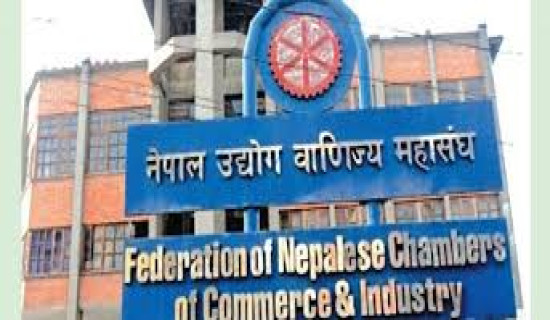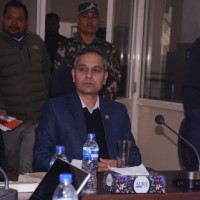- Wednesday, 31 December 2025
Sellout Stories In Paid Press
Even as the reverberations made by disclosures on American foreign aid abuse continue to shock people, the manner in which money has been poured into manipulating the mass media not only in the United States but across the world is a painful eye-opener.
As many as 43,300 media outlets, including media-related NGOs, were funded to the tune of a staggering $780 million through various agencies that served as front organisations for the US government. The mobilised service obtained 4,800 broadcast hours for propaganda purposes. Reporters Without Borders informs that the 2025 US foreign aid budget allocated $268.4 million to support “independent media and the free flow of information”.
The media accepting state funds on the sly have done so of their own volition. The powerful lure of money is too irresistible to be rejected by huge numbers of individuals and institutions. Whether the aid-giver’s strategy was right might incite debate but their beneficiaries seem to be searching for shelter from self-doubts or accusing fingers. Supervising the Department of Government Efficiency, the world’s richest billionaire Elon Musk pledges to root out waste, fraud and misuse. Appointed by President Donald Trump and working without any salary, he wants to stop backdoor payouts.
At paymaster’s service
How many analysts and mainstream media in democracies graded as “advanced” have shown concern over the expansionist expressions that Trump made since his inauguration in January? Money does wonders, which explains the reasons for the deafening silence in mainstream media in “advanced democracies” and those rated as the “freest and most professional”. The propaganda money runs through information outlets in rich and poor nations alike.
If the money thus funnelled were made transparent, the public would at least make its assessment of information channel contents. If government-owned media in all countries are described by private companies as “official” platforms, the news channels funded by foreign donors, too, might be termed “privately owned foreign government media”. We now can guess why the big media skipped the controversial USAID issue. Surely some of the newsrooms among the mighty champions of the independent press must have got some wind of the aid abuse. But there is little or no in-depth or investigative report on media misuse.
As Trump ordered the freezing of the aid agency, Trumpism took Americans and millions, especially the regular fund recipients, by storm. Musk has declared that the Department of Education no longer exists. He thinks education should not be a way of mass indoctrination or a design to apply inclusiveness and diversity at the cost of meritocracy.
The current furor over scam-filled aid allocation partially lifts the lid on dubious and, at times, ridiculous practices. A random sample tells the tales of millions of dollars spent on sex change in Guatemala, opera supporting transgender in Jamaica, binary language study in Sri Lanka, LGTB programmes in several countries, law drafting in different nations, slush funds for insurgencies, inclusiveness and schemes to “alleviate loneliness” among migrant workers.
The controversial billionaire George Soros, widely believed to be the front for the US intelligence agency, CIA, was a conduit for disbursing money “to spread chaos in Sri Lanka, Bangladesh, Ukraine, Syria, Iran, Pakistan, India, the United Kingdom and the US”. The scope of its work included toppling governments and regime changes. American officials were picking cabinet members a month before a military coup toppled Ukraine’s democratically elected government in 2014.
The aid portfolio makes a highly revealing read. Millions of dollars were granted to Freedom House and its foreign associates, The New York Times, the Politico, Associated Press, BBC, Bloomberg and Reuters among thousands of others. Musk described The New York Times as a “government-funded media”, about over $50 million the daily newspaper received from the dubious fund in the last four years alone.
Arab and Jewish photographers were helped with $1.3 million. More than $4.5 million was allocated to a project created to combat disinformation in Kazakhstan. Former US State Department official Mike Benz has alleged that the United States actively interfered in the domestic politics of multiple nations, including India and Bangladesh, using a combination of media influence, social media censorship, and funding of opposition movements.
USAID granted $270 million to Soros Foundations to destabilise India. Elements within the US foreign policy units manipulated online discourse to influence India’s 2019 general elections against Prime Minister Narendra Modi’s Bharatiya Janata Party. Ford Foundation and the National Endowment for Democracy were among the agencies for routing funds in coordination with the CIA.
The new disclosures show that the US State Department exercised influence on major tech companies like Facebook, WhatsApp, YouTube and Twitter to curb pro-Modi content. Musk complains about the inefficient utilisation of taxpayers’ money. But one has to take with a fistful of salt the hopes that funds will no longer be used to interfere in foreign affairs.
Media muddle
The long-held aspect of American aid policy answers why media muck smears certain targets, and how the so-called liberal forces focus on particular issues and groups. As such, the media muddle that created a mess is in for public backlash. In Nepal, too, quite a few media-related organisations have received foreign money. Technically, they might not be on the wrong foot. However, professionally and ethically, questions arise. Some names are already public but with not much surprise. The details, if and when exposed, risk earth-quaking effects.
Not all the volume of money and number of beneficiaries has come to light. The system of contracts, sub-contracts and hiring of consultants and local partners creates a cobweb that might take time to trace and decode. The Open Society Foundations has been quite a presence in Nepal since 2007. Foreign efforts at destablising and interfering in election campaigns in South Asia are no longer secret. The recent disclosures constitute only the tip of the iceberg. Soft power is sought not for any saintly stint but for influence, in a subtle manner outwardly but aggressively with the recipients of the munificence.
Governments and corporate houses hunt for the vulnerable as couriers and porters for their loads. They focus on soft targets and zero in on specific profiles for deep support. When news media fall in line, sell-out journalism takes over. The gruesome episode underscores the conspicuous media silence over money received. They should declare the money thus procured for what service and how much in order to at least avoid being seen as deceitful.
(Professor Kharel specialises in political communication.)















